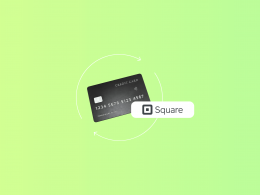Affiliate marketing is a multibillion dollar industry which attracts people of different backgrounds wanting to earn some extra income. The best thing is that nowadays there is an affiliate marketing program for literally everything. You can promote what you’re passionate about and reap the benefits while working from home. What’s more, no startup budget or special knowledge is required, which means that the only resource you need is your time. Interested? In this article we’re going to cover the basics of affiliate marketing, how to pick the right affiliate program and kick off your career as a successful affiliate. You’ll also learn what strategies you need to follow. Ready? Let’s dive in!
Contents:
1. What is affiliate marketing and how does it work?
2. Essential affiliate marketing terms
3. Models for earning commission in affiliate marketing
4. How to start affiliate marketing?
What is affiliate marketing and how does it work?
Investopedia gives the following definition of affiliate marketing:
“Affiliate marketing is an advertising model in which a company compensates third-party publishers to generate traffic or leads to the company’s products and services.”
Investopedia
But what does it really mean?
Basically, once people join an affiliate program, they become affiliates, who are incentivised to promote certain products or services to their audience. The flow of affiliate marketing is simple – affiliates share affiliate links via their preferred channels, customers click the link and complete the purchase, the purchases are tracked with the help of cookies, and the affiliates are paid per referral at the end of an agreed period. Commissions are paid based on performance, so the more successful sales you drive, the higher the commissions are. As simple as that!
For example, when beauty experts promote a new line of makeup to their audiences and encourage them to buy something via a special link or with the help of a unique promo code, that’s affiliate marketing. These beauty gurus earn commissions for each purchase and it can be a very lucrative business!
In fact, platforms and services focused on affiliate marketing managed to raise more than $300M in funding in 2021 alone, and the affiliate marketing industry is predicted to reach $13 billion in 2022 and $15.7 billion by 2024.
Sounds alluring, right? But if you’re just a beginner and considering testing affiliate marketing waters, you need to be familiar with some basic terms and different models for earning commissions.
Essential affiliate marketing terms
Affiliate program: an arrangement under which the seller rewards the affiliates for promotion of certain products and services based on their performance.
Seller: a person or company (sometimes referred to as a merchant or brand) whose products or services need to be promoted under the terms of their affiliate marketing program.
Affiliate: a member of an affiliate program (usually a person or company) that promotes the seller’s products or services to their audience in exchange for commission.
Affiliate agreement: terms and conditions of an affiliate marketing program specifying the responsibilities of the seller and the affiliates, as well as the agreements about payouts and commissions.
Commissions: rewards or payments that will be received by the affiliates upon the completion of a sale.
Affiliate link: a link with a unique URL assigned to a specific affiliate. Links are trackable and help to alert both the sellers and the affiliates to the behavior of the customers.
Cookie: a file that is created and stored on the user’s computer that contains the information on his behavior once he clicks on one of the affiliate links. Each cookie has an expiration date, which refers to the number of days it stays on the user’s computer and consequently determines the time when the affiliates can earn their commissions if the users perform the desired actions.
Now that you have an understanding of basic affiliate marketing terms, it’s important to know the difference between common commission models.
Models for earning commission in affiliate marketing
Some common commission models are:
- Pay Per Click (PPC): Affiliates are paid any time a customer clicks on their affiliate links. The goal of such a model is to increase web traffic.
- Pay Per Lead (PPL): Affiliates receive commission based on the conversion of leads. An affiliate program of such kind stipulates that a customer must not only visit the seller’s website, but also complete the desired action, be it signing up for a demo, starting a free trial or filling out a contact form.
- Pay Per Sale (PPS): Affiliates earn a percentage only after a customer completes the purchase.
How to start affiliate marketing?
Feeling overwhelmed? Our beginner’s guide to affiliate marketing strategies will surely help you do everything right.
Step 1. Do your research
The first thing you should do is learn about your audience and their interests. Finding out what resonates with your audience might well be one of the most overlooked steps by the beginners when they join an affiliate marketing program. Don’t make the same mistake! Study your audience and identify the niche for your affiliate marketing efforts.
It might also be useful to look at trends to assess the demand for a product. In such a way you can identify what the consumers are willing to pay for and make the right choice of an affiliate program. This knowledge will definitely help you market the products that will convert to sales and result in commissions.
Step 2. Pick the right affiliate program
Once you’ve identified your target audience, the niche and the product you’re going to promote, it’s time to see what affiliate programs are out there. There are many points to consider, but we suggest you start with brand reputation, earning potential, and assessing the competition.
You have to do some due diligence as your reputation and credibility depend upon the brand you’re going to represent. Affiliate marketing isn’t an exception.
Check out the financial conditions – commission rates, cookie life, types of commission – the things that will determine the amount of payouts on your side. Find an affiliate marketing program that satisfies all your requirements.
Last, but not least, is assessing the competition in the given affiliate marketing niche. Lots of competition may be the sign that the niche is saturated, which usually translates to more marketing efforts and fewer commissions. Lack of competition might indicate that there’s no interest in the product. Choosing such an affiliate program might not be feasible in the long run. Knowing the details of your competition helps you choose the right strategies for your affiliate marketing business.
Feeling lost? Let’s take a look at the Synder Partner Program, which is a good point to start with if you’re in e-commerce.
Synder boasts one of the best reputations in the sphere – it’s a 5-star rated, best-selling e-commerce accounting software available for users from the US, the UK, Canada, Australia, New Zealand or Western Europe (France).
Users love Synder because it allows them to automate their finance management, store data from multiple sales channels and payment gateways in one source of truth, and provides them with detailed and accurate reporting.
Affiliates earn up to 20% of recurring commission for each new customer. The affiliate program has a long cookie period of 90 days that gives customers enough time to evaluate the perks and make a decision.
If you’re a content creator, marketing agency owner, accountant or e-commerce specialist, Synder Partner Program is a perfect match! Synder team will help you succeed, providing you with human support and a resource center that is packed with lots of assets to boost your efforts! Become a partner now.
Step 3. Create high-converting affiliate marketing content
There’s one thing you should remember – if you don’t have engaging and high-quality affiliate marketing content, your efforts as a successful affiliate marketer will be futile. Usually affiliates are provided with some of the marketing materials, but it’s your duty to make them appealing to your audience.
Make sure that your content stands out. Adding a banner or casually dropping the name of the product just won’t do it. Use some powerful and trustworthy copywriting, publish customized content and try to find a unique way of promoting your product. Audiences love being taken care of, just find a way.
Step 4. Choose a platform for your content
When you’re starting out with affiliate marketing, selecting a platform for your content should be taken seriously. No matter how engaging and unique your promotional materials are, if you choose the wrong platform, no strategy will help you.
Consider your options:
- Do you have a website or blog? If you do, you’re lucky! Monetize it! If you don’t, you can always use a specialized platform with templates and create them from scratch.
- Do you have a devoted audience on social media? It’s high time to integrate your affiliate marketing materials with visual content. Just go for it!
- Are you a fan of video content? YouTube and TikTok have been dominating affiliate marketing since the beginning of the pandemic and show no signs of slowing down. It’s time to join!
Step 5. Monitor and increase your commissions
Your payouts are a good indication of your current success in affiliate marketing, but they do not guarantee anything. Monitor and review your performance each month in order to have a clear understanding of the situation. Using performance metrics can help you identify the strategies that work best and eliminate those that don’t. Your instincts are good, but relying on solid data is even better!
Thorough analysis may open the door to new opportunities in your marketing activities and consequently lead to higher commissions. Make sure you make the most of your affiliate program!
Bottom line
There are many ways you can make money online, but very few of them are as flexible, creative and profitable as affiliate marketing. If done right, it may become a great source of passive income and valuable experience. Just like any business, it requires motivation and hard work, but the results are definitely worth it.
We’ve provided you with an insight into the world of affiliate marketing – now you know the basics, the flow and the best strategies to follow. The affiliate marketing industry is booming – it’s never been more popular. So what are you waiting for? Start your successful affiliate business now!







.png)
